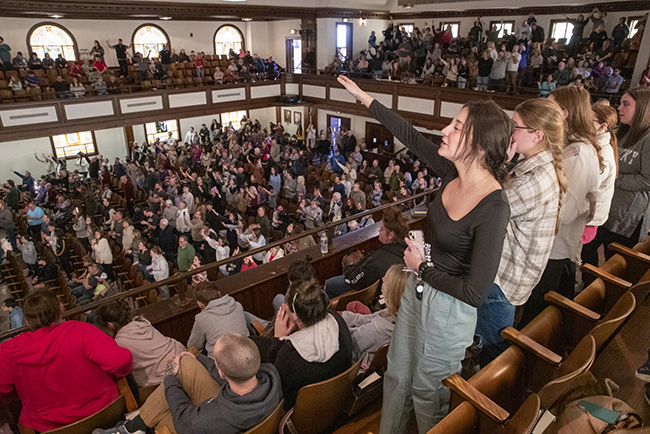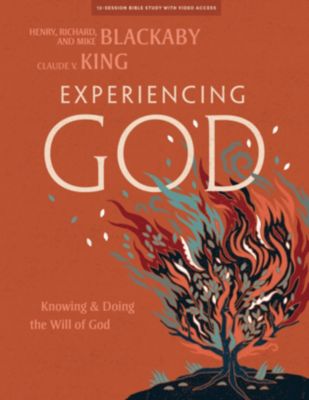
The revival at Asbury may be a genuine outpouring of the Spirit. But ultimately, we must trust in the Lord to bring revival to His people.
By Jacob Lewis
The modern church is desperate for revival. Pastors and congregations alike are praying and seeking an outpouring of the Spirit in the lives and communities around them. An analysis of sermons in 2021 found revival among the top 10 sermon series topics.
Many churches are so eager for revival that they schedule events during the church calendar year dedicated to its cultivation and experience. Yet, for all of our excitement, churches that experience true revival are often like the dog that finally catches a car. When it happens, we find ourselves unsure of what to do next.
Many pastors have probably wondered about this over the past few weeks as the news of the Asbury University revival services that started on February 8 has become more widespread. Many congregants have been asking their pastors some variation of: “What are your thoughts about what’s going on at Asbury?”
Of course, with the situation there still evolving and with the modern media machine constantly churning out both information and misinformation, it can be tough to know what position we take when we hear reports of revival taking place anywhere. Already there are reports of revival services breaking out on other college and seminary campuses.
Rather than responding with personal opinions, we can turn to the Word of the Lord for guidance on how to study, experience, and facilitate revival ourselves. Below are three biblical positions on revival and spiritual renewal for pastors to keep in mind.
Embrace cautious optimism
Every revival movement has its roots in prayer. American Christians have been praying for revival outpourings, and we shouldn’t be surprised when God answers those prayers. However, Scripture gives us a few guidelines that allow us to gauge the authenticity of revival outbreaks.
Paul writes to believers in Thessalonica with the following instructions: “Don’t stifle the Spirit. Don’t despise prophecies, but test all things. Hold on to what is good” (1 Thessalonians 5:19-21, CSB).
Paul’s wisdom informs our attitude, spiritual posture, and method of study when encountering revival. Note the first piece of advice: Do not quench the Spirit, and don’t despise the message being proclaimed. We can quench the fire of the Spirit by lacking faith, being apathetic, rejecting Him, or entertaining distraction. It’s possible for us to become so spiritually jaded and pessimistic that we miss true revival when it arrives. So, Paul advocates optimism when we hear reports of revival among churches.
However, that optimism is not unbridled. Paul didn’t want the church in Thessalonica to be naive in their worship. He warned them to temper this optimism with biblical caution. Paul says we should test all things.
From the personal testimony to the worship service involving hundreds, Christians have a responsibility to test the nature of each spiritual encounter and verify what is good. How do we test these things? We verify not by any subjective opinion but by the standard found in God’s Word.
Our duty then is to observe the happenings at Asbury with joy and hope but also with caution as we compare what is being proclaimed with the truth we find in the Word of God. After we test what we’ve observed according to the standard of God’s Word, we hold fast to what is good.
“We can follow the Berean example. Study and test but do so with an open heart to the work of the Kingdom.” — Jacob Lewis Click To TweetWe find perhaps the best example of this attitude in all of Scripture with the Bereans in Acts 17. “They received the word with eagerness and examined the Scriptures daily to see if these things were so” (Acts 17:11b, CSB). This is Paul, an apostle and author of several New Testament letters, preaching to the Bereans. And these Christians still take the responsibility of personal study and testing seriously. They are eager to test and see if Paul’s preaching is good and worthy of holding on to.
Note that in all their dedicated studying, they are still eager, still excited about the possibility of God speaking and moving in their midst. Christian, we can follow the Berean example. Study and test but do so with an open heart to the work of the Kingdom.
Don’t chase a spectacle
As a pastor, members of my own congregation have approached me wondering if it would be appropriate to make the journey to Asbury themselves to take part in the revival services happening there.
I believe there are many such attendees with good intentions in their visit to this event. But I will offer us the same word of caution Jesus gave the Pharisees and Sadducees: “An evil and adulterous generation demands a sign, but no sign will be given to it except the sign of Jonah” (Matthew 16:4a, CSB).
The Pharisees of Jesus’s day had no desire for personal involvement or dedication to Jesus. But they were very interested in the spectacle and miracles of Jesus. Note that Jesus described the hearts of people looking for signs as adulterous. In other words, unfaithful. Rather than trusting in a savior, they were looking for a spectacle.
“Before making the pilgrimage to a place where revival has already broken out, ask yourself what you are doing in your own home church to bring revival there.” — Jacob Lewis Click To TweetThere is a great danger in becoming obsessed with spiritual signs and spectacles to the point that we miss out on the Savior standing right in front of us. To bring this argument to a more personal point of application, let us remember God is just as available in your local church as He is in Kentucky. Before making the pilgrimage to a place where revival has already broken out, ask yourself what you are doing in your own home church to bring revival there.
Anyone praying for revival in their church would be wise to read passages like Amos 5:21-25, where the prophet reminds us that God rewards and prefers righteous living and justice over hymns and a show.
What is going on at Asbury seminary may indeed be a genuine revival. But those who are driving for miles, seeking a spectacle, and recording on their phones may threaten the very authenticity and awe that make revival services sacred.
Here’s the silver lining, revival can take place anywhere. You don’t need to travel or endorse someone else’s revival in order to experience genuine spiritual renewal. It can, and will, happen in your church as the Lord leads.
Ultimately, trust in the Lord for revival
There is a tendency in our modern church culture to search for revival success, study it, and then try to replicate the results. In many ways, this can be unhealthy for churches as they become frustrated over the years of trying to cultivate a genuine revival in their communities.
In 2 Samuel 24, King David commits a serious sin before the Lord in taking a census of the nation. At a glimpse, what David does seems reasonable, even laudable. The sin is revealed later on in the chapter as David undergoes conviction. David’s census caused him to lean on his own kingly strength rather than depend on the Lord for the well-being of Israel.
“If we are not careful, we can become so wrapped up in the method, the circumstances, and the outcome of revival that we miss the God who ultimately brings it.” — Jacob Lewis Click To TweetPastors, if we are not careful, we can become so wrapped up in the method, the circumstances, and the outcome of revival that we miss the God who ultimately brings it. Rather than trying to replicate the success and style of others, the Lord calls us to wait on His timing in bringing revival to the local church. On the day of Pentecost in Acts 2, we read that revival came from heaven. It wasn’t of earth; it wasn’t created, manipulated, or made here.
We can pray, and we can prepare. But revival is something that can’t be forced and is ultimately completely reliant on God’s timing. With that said, I think the greatest takeaway from Asbury is to trust in the Lord. In six months, we may look back at the revival at Asbury and conclude that it was a genuine outpouring of the Spirit. But no matter the outcome, the greatest lesson will not change. Christians ultimately must trust in the Lord to bring renewal and revival to His people.
For permission to republish this article, contact Marissa Postell Sullivan.
Jacob Lewis
Jacob serves as the Pastor of Haw Bluff Baptist Church in Kelly, N.C. He holds an M.Div in Apologetics from Southeastern Baptist Theological Seminary and currently serves on the Board of Directors’ Mission Catalyst Committee for the Baptist State Convention of North Carolina.











